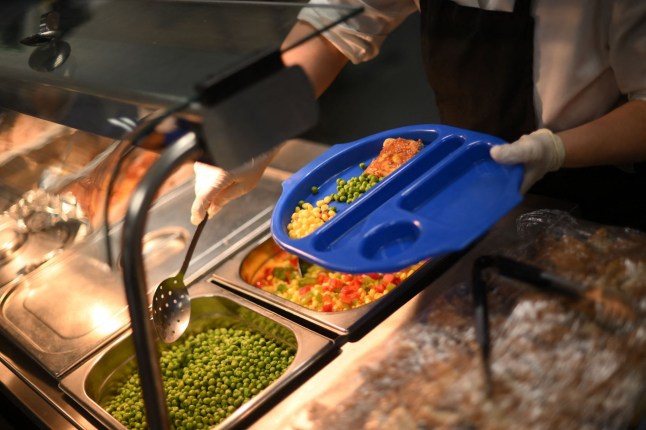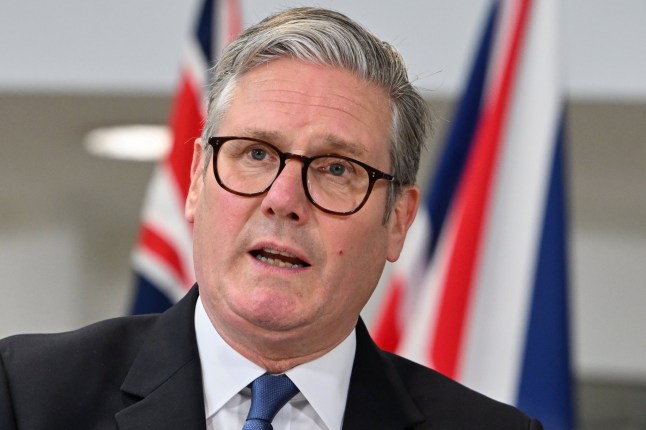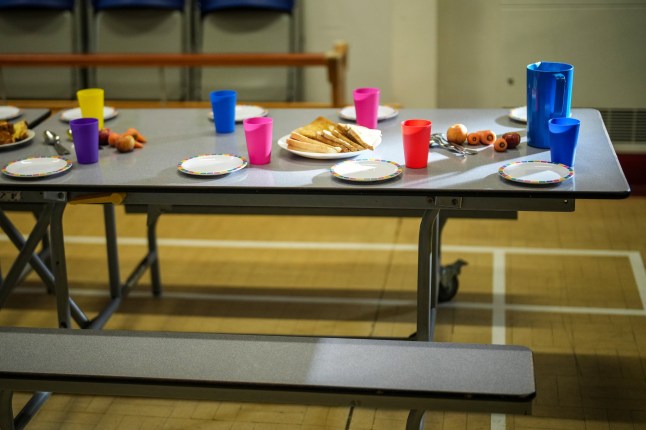
All pupils in England whose families are on Universal Credit will be eligible for free school meals from the 2026/27 academic year.
Currently households on Universal Credit must earn below £7,400 a year (after tax and not including benefits) to qualify.
But following pressure from campaigners and education leaders, the Department for Education (DfE) has announced the change which is set to benefit more than half a million pupils.
It has suggested this will lift 100,000 children out of poverty as the cost of living crisis continues to bite.
‘It is the moral mission of this government to tackle the stain of child poverty,’ Education Secretary Bridget Phillipson said.
‘Today this government takes a giant step towards ending it with targeted support that puts money back in parents’ pockets.
‘From free school meals to free breakfast clubs, breaking the cycle of child poverty is at the heart of our Plan for Change to cut the unfair link between background and success.
‘We believe that background shouldn’t mean destiny. Today’s historic step will help us to deliver excellence everywhere, for every child and give more young people the chance to get on in life.’

Prime Minister Sir Keir Starmer hailed the expansion as a ‘truly historic moment for our country’.
Around 1 in 4 of all pupils (24.6%) – 2.1 million – were eligible for free school meals in January 2024.
This is an increase of 75,000 pupils from January 2022, when 2 million (23.8%) were eligible.
The number of pupils who are on free school meals has been on the increase since 2017/18.
Factors like the Covid pandemic in 2020 resulted in a notable increase.
Number of pupils on free school meals in England
2022/23: 2,019,509 pupils
2021/22: 1,897,449 pupils
2020/21: 1,737,598 pupils
2019/20: 1,440,788 pupils
2018/19: 1,270,941 pupils
2017/18: 1,106,633 pupils
2016/17: 1,128,403 pupils
2015/16: 1,142,043 pupils
Some regions have shown higher increases over the years, including the West Midlands and London.
The government’s child poverty strategy had been due for publication in the spring but has been delayed until autumn in time for the budget.
Kate Anstey, head of education policy at the Child Poverty Action Group (CPAG) charity, said she hopes this announcement is ‘a sign of what’s to come in autumn’s child poverty strategy’.
Nick Harrison, chief executive of the Sutton Trust social mobility charity, said: ‘This is a significant step towards taking hunger out of the classroom.
‘Children can’t learn effectively when hungry, so this announcement not only helps to tackle the effects of child poverty, but will also likely help improve education outcomes for disadvantaged young people.
‘Giving free school meals to all families who are eligible for universal credit is also easier for parents to understand, so has the potential to increase take-up rates.’

Daniel Kebede, general secretary of the National Education Union (NEU), said that many children in families who just miss out on being eligible for universal credit will also ‘miss out on a hot, healthy school meal’.
Mr Kebede added: ‘Ensuring that a free school meal is available to all children is the next urgent step that must be taken.’
The Liberal Democrats said this is ‘only a first step’ towards helping children in poverty but welcomed the change as a ‘victory for thousands of passionate campaigners’.
The party has called for the lifting of the two-child benefit cap, and capping uniform costs to help ease further poverty.
Get in touch with our news team by emailing us at webnews@metro.co.uk.
For more stories like this, check our news page.
MORE: Halving violence against women and girls will require more cash, watchdogs say
MORE: Martin Lewis says 400,000 Brits are due £1,000s in council tax refunds — could you be owed money?
MORE: Aldi freezes price of baby formula for the rest of 2025
